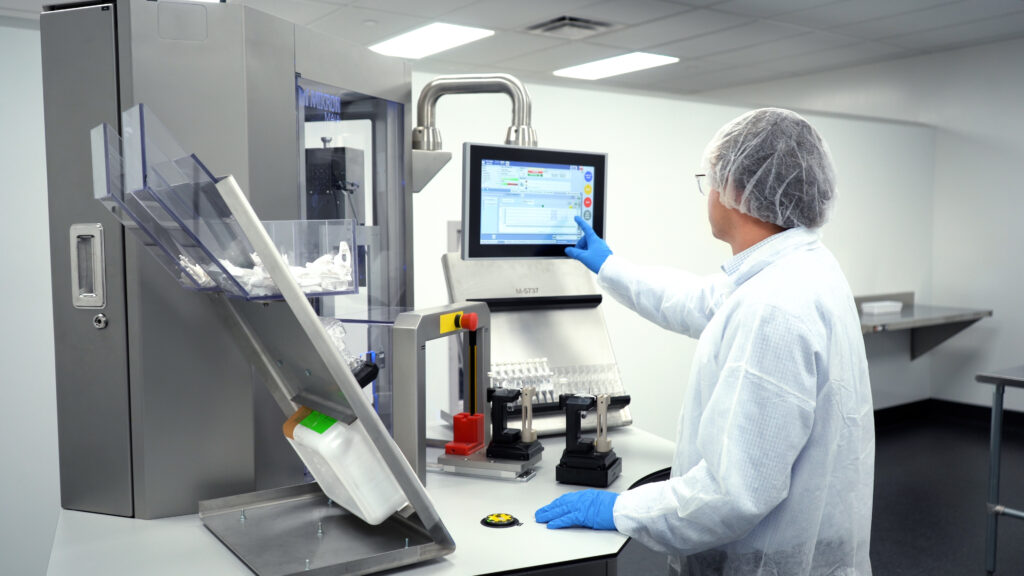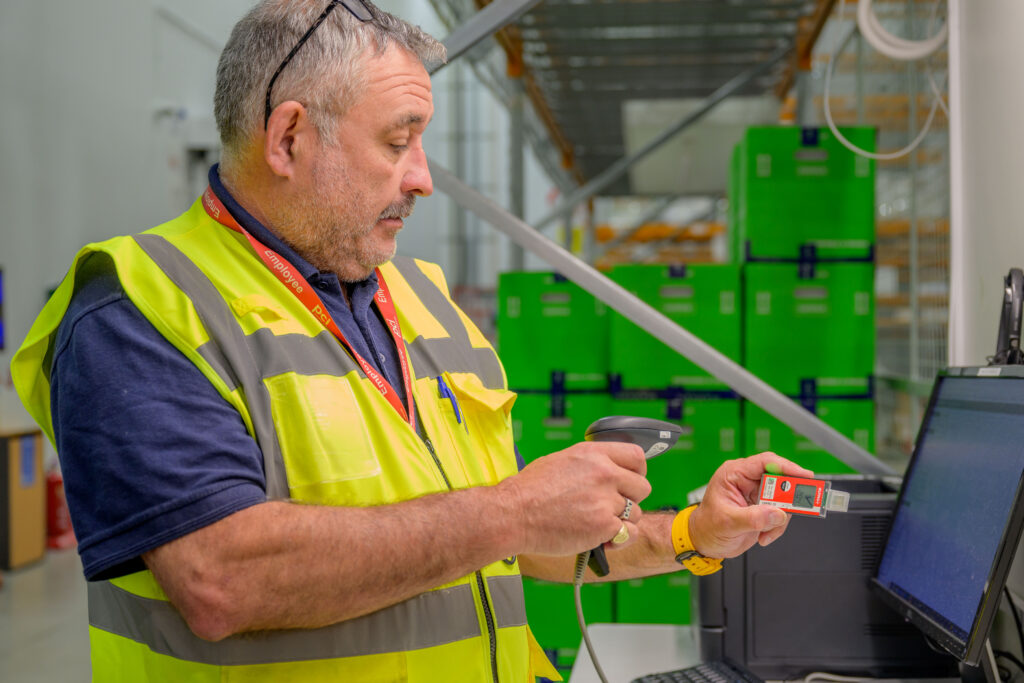Clinical trials are the critical stages in which scientific innovation is tested and validated in patients, collecting the data that will transform experimental therapies into approved treatments.
While therapeutic efficacy remains the ultimate driver, the practical execution of packaging, labelling, and distribution determine whether an investigational therapy reaches trial participants on time, in stable condition, and in full regulatory compliance. Selecting the right partner to execute these activities is not simply a procurement exercise. It is a strategic decision that directly influences patient safety, cost control, and trial continuity.
The critical clinical trials needed to establish safety and efficacy as well as providing registration data, are typically large, global, and complex, in design. This complexity heightens operational risk from supply chain disruptions to regulatory misalignment. The ability to anticipate and manage these risks is now a differentiator between trials that run smoothly and those that stall. PCI Pharma Services, through its clinical Supply Management And Readiness Team (SMART), demonstrates how an operationally focused CDMO can be an engine for trial success, bringing together foresight, flexibility, and executional excellence.

Early Engagement: Designing for the Full Trial Lifecycle
Early engagement is one of the most reliable predictors of operational success. When sponsors bring in a CDMO able to complete appropriate planning before the first patient is dosed they gain the ability to create a coherent, phase-appropriate supply chain strategy that can flex as the study advances.
Proper early preparation allows packaging formats, dosing strategies, and labeling requirements to be designed in direct alignment with the therapy’s specific formulation whether an oral solid dosage, sterile injectable, prefilled syringe, or auto-injector. Early engagement provides time to adjust plans in response to changes in the clinical design. Many sponsors underestimate the impact some changes may have to trial demands and failure to adjust can have a significant negative impact. Maintaining detailed forecasts throughout the planning phase will ensure sufficient supplies are available for uninterrupted trial management.
Early planning also allows regulatory compliance to be addressed with foresight. This includes U.S. FDA guidelines, European Medicines Agency (EMA) requirements, country-specific labeling laws, and packaging language rules. The earlier these are incorporated into design, the less rework is needed later, reducing both cost and time to market.
As Ed Groleau, Senior Director of PCI’s SMART team, explains, “Sponsors who involve us at the design stage benefit from a strategy that can grow with them. We look not only at the first shipment but also at the eventual global footprint, so nothing is built in isolation.”

Packaging Strategy: Safeguarding Product and Supporting Patients
The primary role of clinical trial packaging is to protect product integrity which helps prevent degradation, avoid contamination, and maintain stability under the appropriate environmental conditions. Yet in today’s trials, packaging also supports patient adherence, dosing accuracy, and cost efficiency.
In early-phase studies, smaller patient numbers allow for greater flexibility. Bottles or basic vials may suffice, offering a cost-effective way to deliver product while data are being gathered on dosage, stability, and patient tolerability. These formats allow quick adjustments if dosing regimens change. In contrast, later phases require packaging solutions that can be standardized across larger production runs, such as blister packs for oral solids or prefilled syringes for injectables, with an eye on potential commercialization.
Regulatory compliance is a constant throughout. Labels must present information clearly, conform to local and international guidelines, and often be translated into multiple languages. For multi-country trials, even subtle differences such as the order in which dosing instructions appear, can affect approval timelines. This makes early collaboration between supply managers, regulatory affairs teams, and packaging designers essential.
Patient-centricity must be embedded in packaging strategy. Complex opening mechanisms, confusing dose presentations, or poorly legible labels can undermine adherence. For blinded studies, packaging must prevent unintentional unblinding while remaining user-friendly.
Distribution and Logistics: Connecting Manufacturing to the Patient
Once packaging is complete, the focus shifts to distribution; an area where precision, compliance, and foresight are vital. The journey from manufacturing site to patient often spans continents, climates, and customs authorities, each with its own potential points of failure.
Temperature control is one of the most critical factors. Whether the requirement is controlled room temperature, refrigerated, or frozen, conditions must be maintained throughout transit. This is why PCI emphasizes the use of qualified shippers, or containers that have been validated under rigorous testing to maintain specific conditions for defined durations. Relying on unvalidated shipping methods, such as ad-hoc gel pack arrangements, exposes the trial to product loss and compliance risk.
International shipments introduce additional complexity. Sponsors must know the import regulations of each destination country in advance, including required documentation, duties, and value thresholds. The intended use of the product, whether for research only or clinical administration, influences customs classification and clearance requirements. The designated importer of record must be confirmed before shipment; without this, goods may be held indefinitely at the border.

Timing is also critical. Many countries require a “green light” process, involving pre-approval of paperwork and, in some cases, import permits. Depending on the country, these steps can take a few days to several weeks. Building these timelines into operational planning prevents delays in site activation and patient dosing. Selecting a CDMO with the knowledge and experience to provide guidance through these requirements is critical for ensuring flawless execution of the trial.
For high-value or irreplaceable products, such as cell and gene therapies, PCI often incorporates GPS-enabled tracking with geofencing, real-time environmental monitoring, and redundant contingency planning. Even for less sensitive products, these technologies add a layer of assurance and visibility that supports both compliance and proactive issue resolution.
Scaling Up: Meeting the Demands of Later Phases
The logistical leap from Phase I to Phases II and III is profound. In Phase I, small patient populations and fewer sites allow for nimble, adaptive packaging and distribution strategies. Later phases, with larger enrollment and global reach, require a shift toward industrialized processes.
Regulatory diversity becomes a central challenge. It is a well-known fact that labeling must conform to varying national standards, however, other aspects such as the requirements to complete Qualified Person (QP) release may be unknown or overlooked. Failure to account for everything required to progress from bulk drug to kit delivered to sites can cause detrimental delays. Having an experienced supply chain manager involved in the planning and execution of the trial can avoid these pitfalls.
Synchronizing manufacturing, packaging, and distribution with real-time enrollment data becomes essential to prevent both stock shortages and costly overproduction. PCI addresses this through modular, scalable supply chain design. Components of the process, from primary packaging to secondary labeling, can be adjusted or expanded without redesigning the entire system. This flexibility is particularly valuable when enrollment trends diverge from projections or when studies expand into new geographies mid-trial.
The Human Factor: Expertise and Cultural Fit
Technology and infrastructure are critical, but it is people who ultimately determine whether a supply chain strategy succeeds. The most effective CDMOs embed themselves into the sponsor’s team, providing not only operational execution but also strategic counsel.
For example, PCI’s clinical SMART offering harnesses the experience of supply chain professionals bringing multidisciplinary knowledge including quality assurance, formulation science, regulatory affairs, and global logistics into a team that operates as an extension to their clients business. They anticipate bottlenecks, whether regulatory, logistical, or production related, and intervene before these issues affect patient dosing. Communication is constant and transparent, with regular planning calls, data-driven status updates, and rapid decision-making when conditions change.
Cultural alignment matters. When a CDMO shares the sponsor’s commitment to patient safety, trial integrity, and long-term success, the relationship evolves beyond a transactional contract into a true operational alliance.
Technology as a Supply Chain Enabler
In a global trial environment, technology is a powerful enabler of visibility, control, and compliance. Integrated digital platforms allow real-time monitoring of shipment conditions, automatic updates to expiry dates, and instant inventory status across depots and clinical sites. Forecasting tools align manufacturing output with actual enrollment patterns, reducing both shortages and waste.
While no system can replace experienced judgment, technology amplifies operational capability. PCI integrates data from its global logistics network, packaging operations, and clinical supply managers into unified dashboards, enabling sponsors to make informed, timely decisions. These capabilities not only support compliance but also streamline the preparation of regulatory submissions.
[Bridge_Figure4]
Risk Preparedness: Planning for the Unplanned
Disruptions can still happen in long-running, multinational trials. Weather events can close airports, geopolitical instability can disrupt transport routes, and manufacturing issues can delay batch release. The most resilient programs are those that prepare for these possibilities in advance.
Resilience begins with diversification. Secondary suppliers and depots are qualified in key regions to provide redundancy. Safety stock is maintained in proportion to manufacturing lead times. Alternative logistics routes are mapped for high-priority shipments, and contingency protocols for temperature excursions, customs delays, or shipment loss are documented and rehearsed.
Brian Keesee, President, Clinical Trial Services at PCI Pharma Services states, “Every clinical program will encounter unexpected turns. The difference between a minor adjustment and a major disruption comes down to the quality of the planning you do before the first shipment leaves the depot. At PCI, our goal is to design supply strategies that don’t just survive change, but perform better because of it.”
Partnership as a Competitive Advantage
In the high-stakes world of clinical research, operational excellence in packaging, labeling, and distribution is as essential to trial success as the therapeutic science itself. Sponsors who view their CDMO as a strategic partner, not just a service provider, are better equipped to navigate complexity, control costs, and protect patient safety.
PCI Pharma Services, through its SMART clinical trial management approach, shows how early engagement, phase-appropriate packaging, global logistics expertise, and a team of seasoned professionals can transform the clinical supply chain from a potential vulnerability into a competitive advantage. In doing so, PCI helps ensure that life-changing therapies complete their journey from the laboratory bench to the patient bedside efficiently, compliantly, and reliably.
We are committed to supporting clients at every stage of the manufacturing cycle, delivering best-in-class services efficiently and effectively.
Find out more about our fully integrated Packaging Services.





